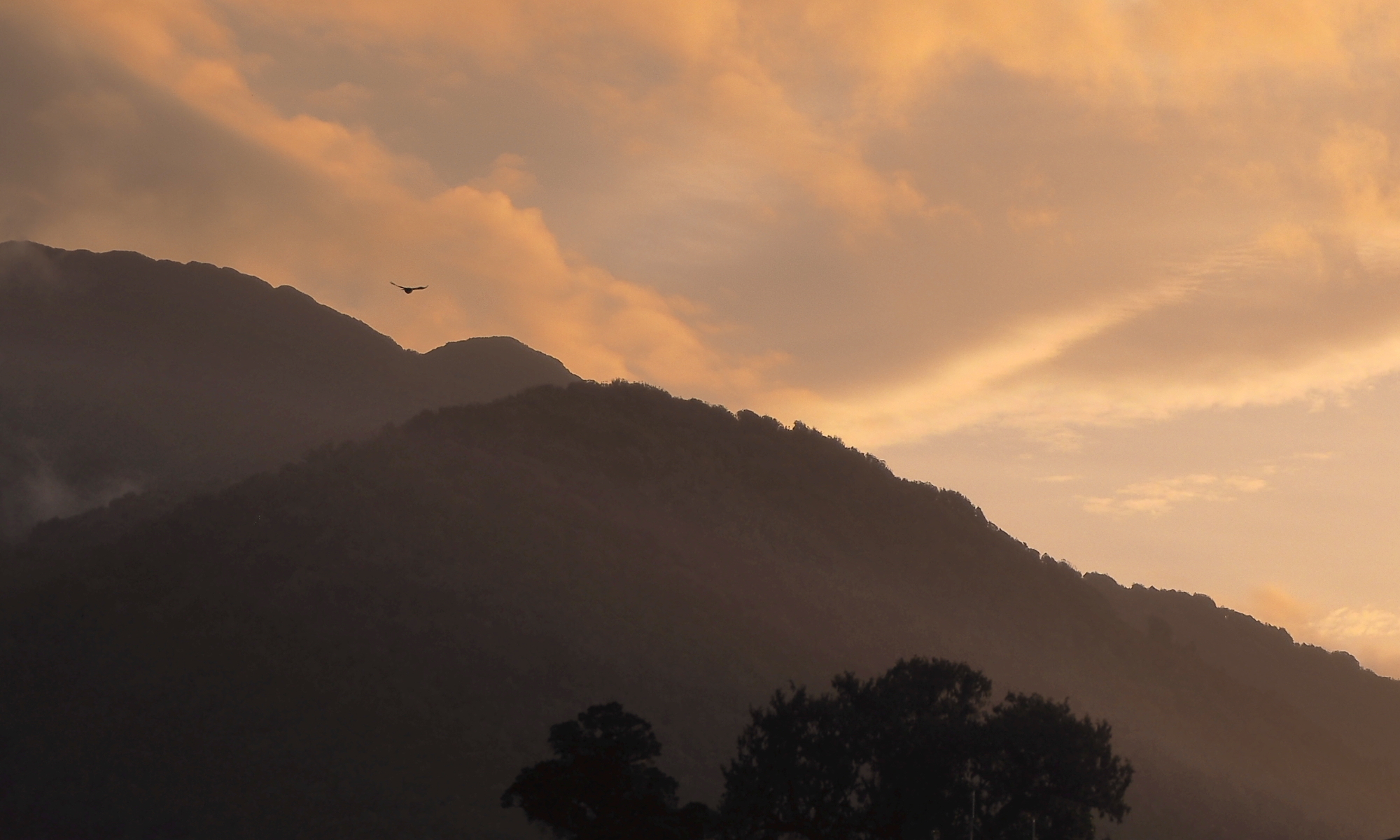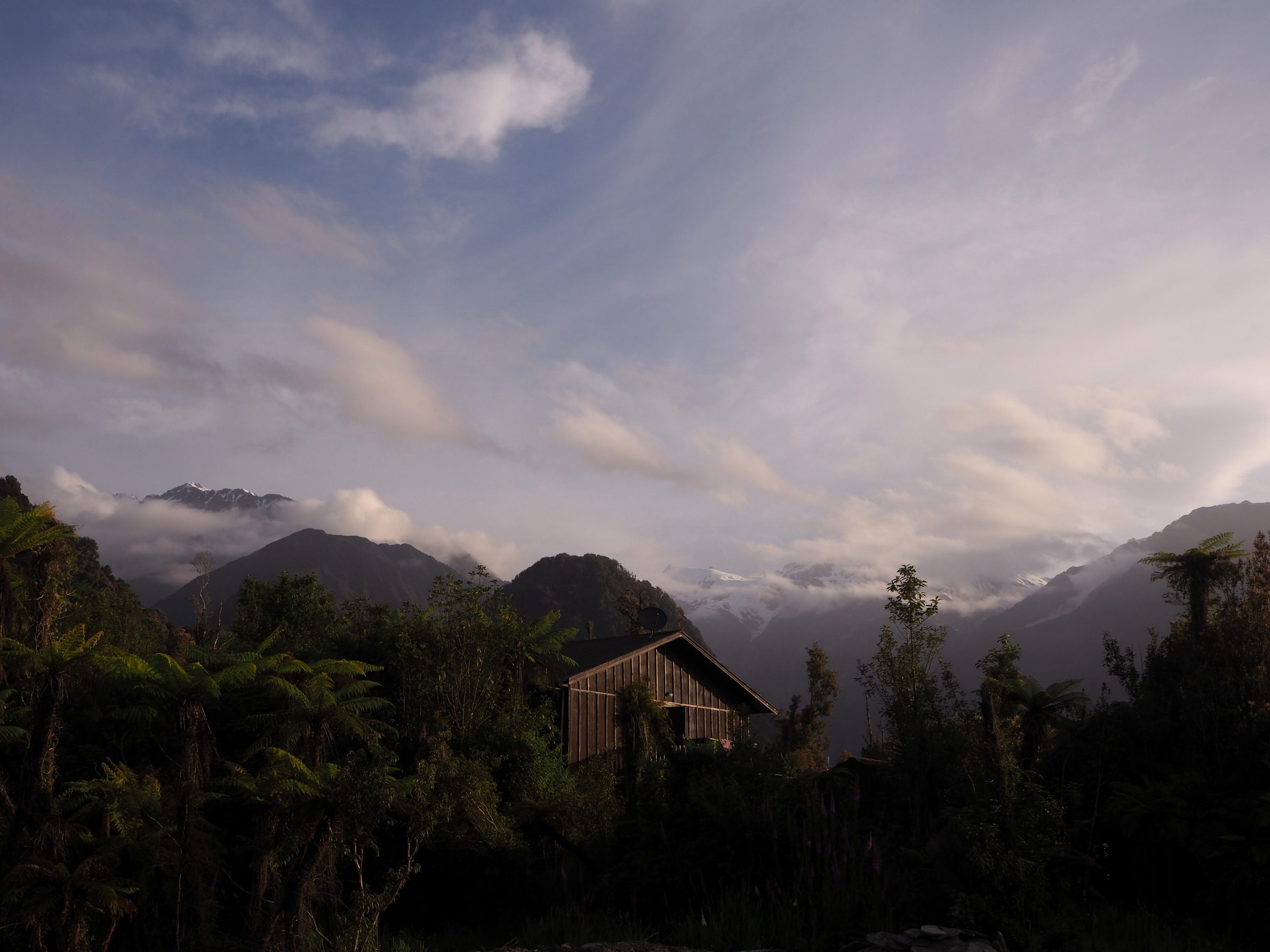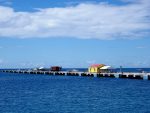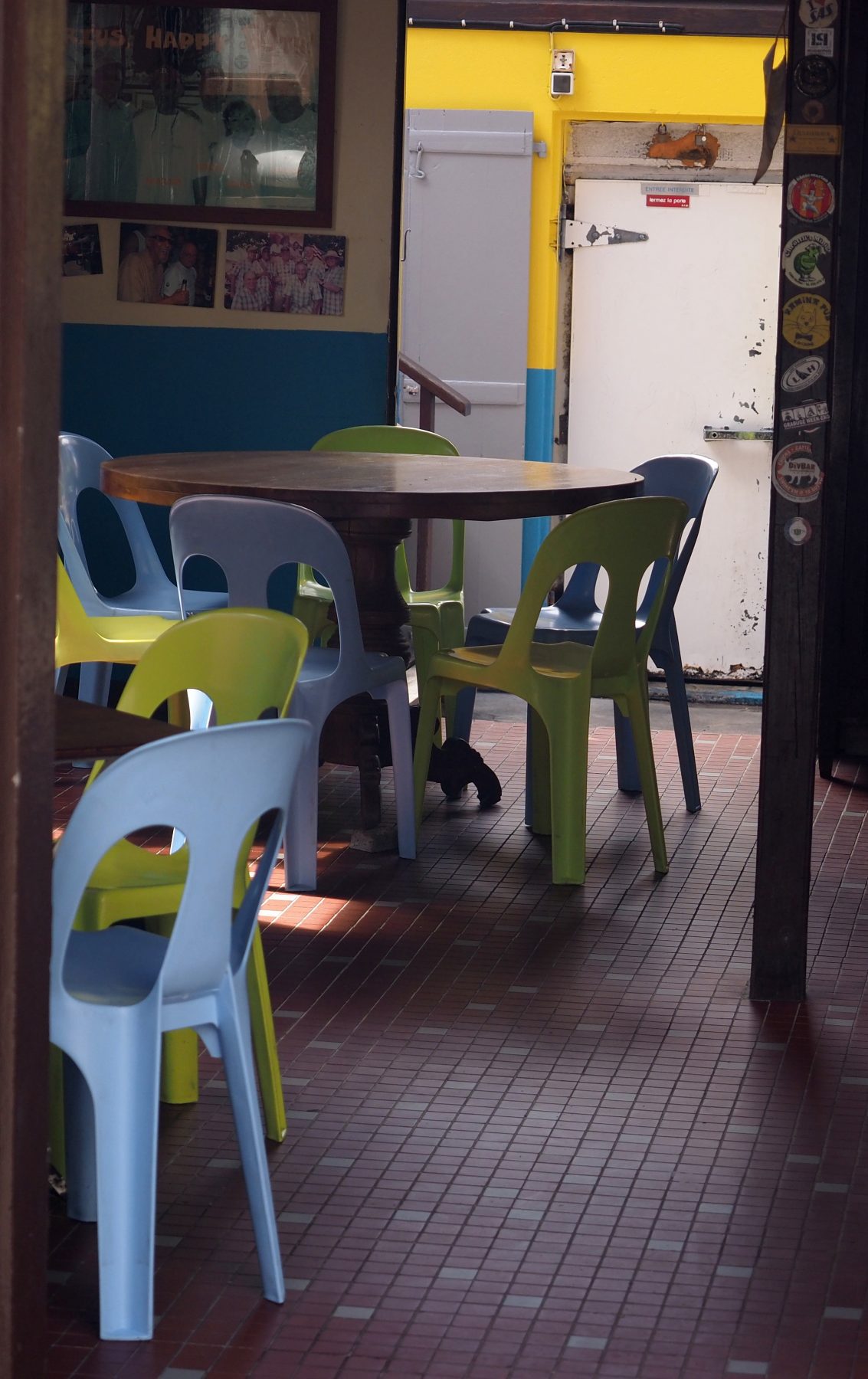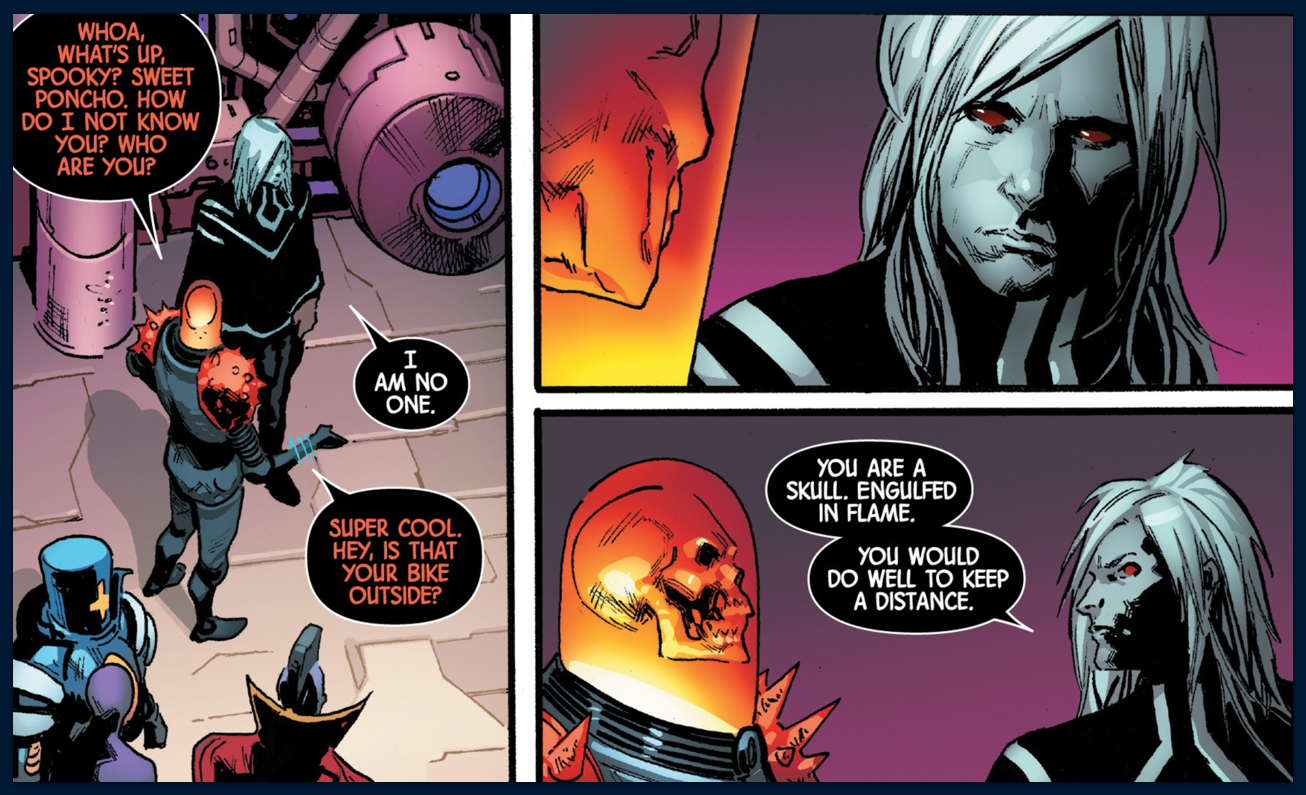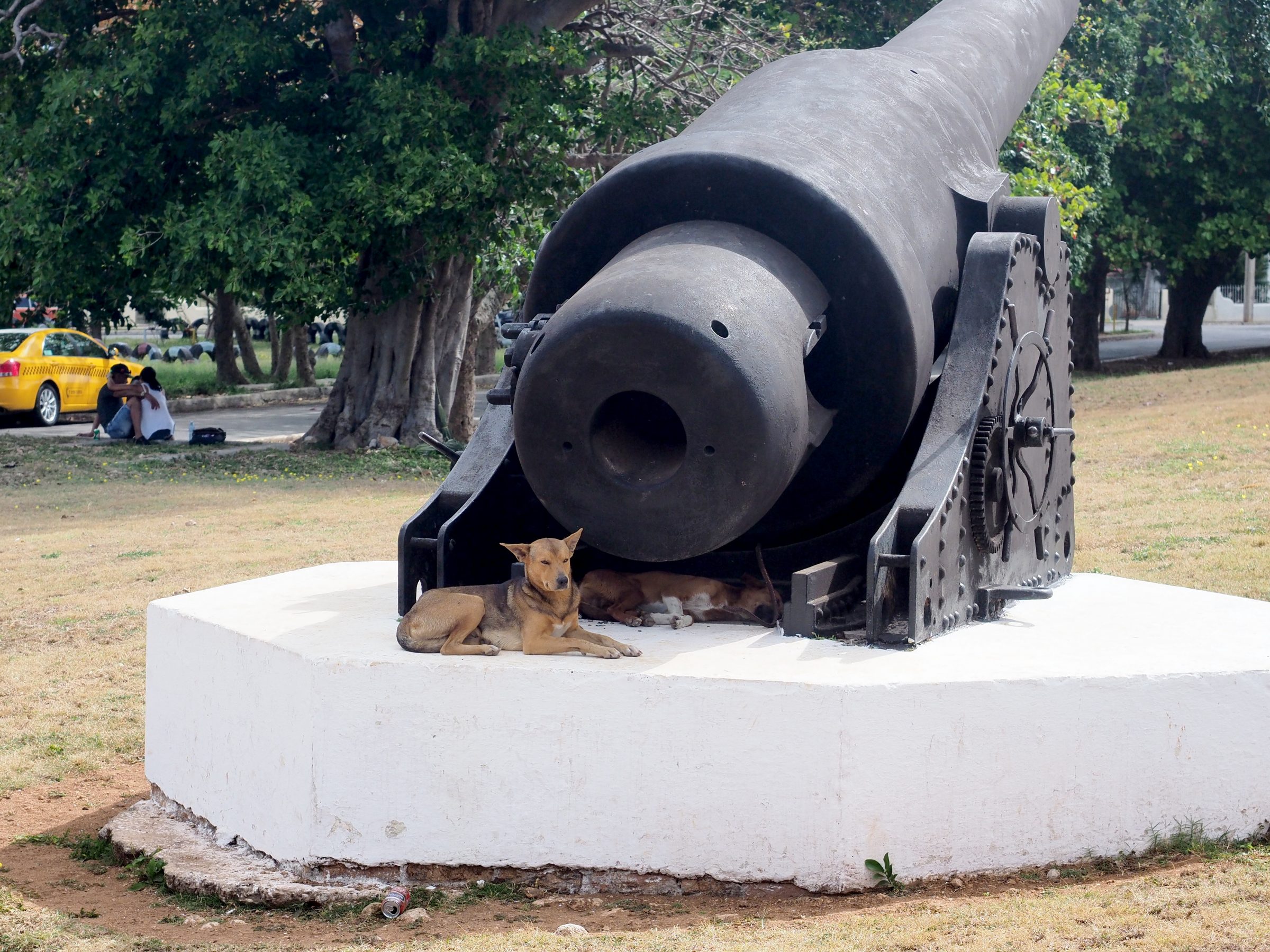I’ve been told that I have an odd sense of humor. A bit too meta, perhaps.
Palm trees and snow
One of those “Earth-That-Was” scenes…
Cruise Photos 2019-01
“You are a skull. Engulfed in flame.”
Guardians of the Galaxy 2 – “The Final Gauntlet II” (2019)
written by Donny Cates
art by Geoff Shaw & Marte GraciaThanks to “why I love comics“
A brief review of “W”
I’m a tremendous fan of “Memories of Alhambra“, a Korean series of 16 episodes on Netflix. There are many excellent aspects — the acting is great, the actors are attractive and engaging, the scenery is interesting, the directing is wonderful, and the production qualities are great. The only negative I noticed, and it’s a small one, is that occasionally the editing seems a bit abrupt.
But the absolutely knockout feature of “Memories of Alhambra” is the writing. It is a wonderful and creative story. The characters are well-developed, believable, and complex. The secondary characters are just as real. The plot builds through the entire series, and is unpredictable to the end . Since I don’t speak Korean, I can’t really comment on the quality of the dialogue, but even through the subtitles it seems spot on to me.
So I was very interested to discover “W — Two Worlds“, an earlier series by the same writer, Song Jae Jung. It received rave reviews, but unfortunately is not available on Netflix. It is available, however, on viki.com, and I just finished watching it yesterday.
It is good, and it deserves the rave reviews. In my opinion it’s not at the same level as “Alhambra” in many ways — but it shares the same creative storytelling. One of the reviews said that it was instrumental in founding a new wave of Korean cinema, and I can see that.
“Alhambra” is science fiction, almost, where some attention is paid to having a basis in reality for the fantastic events. “W” is a fantasy about an alternate dimension, and there is no attempt to explain how the alternate dimension came into existence. You can only take it as a pure story; the alternate world is just an imagination that you have to accept for the story to proceed. Both main characters die, and are brought back to life through trans-dimensional manipulations, and you can’t be distracted by how this actually happens. This is where the true talent of Song Jae Jung is revealed — she is able to make you forget the absurd basis and fall into the story as a story.
“W” is also much more a conventional romance — every episode has a “kiss” scene between the two main characters, for example, and the ultimate resolution is them living “happily ever after” . This may be a bit too cliche for some — and there are hints in an interview that this may be a deviation from the original script.
The story goes through about 4 major arcs of death/despair to blissful romance, and it does get a bit predictable. And the series a bit too primary in its emotional colors. But I liked it. I notice that there is another Netflix series, “Nine: Nine Time Travels“, written by Song Jae Jung. Next on my list…
San Francisco Bay
Teacups from China
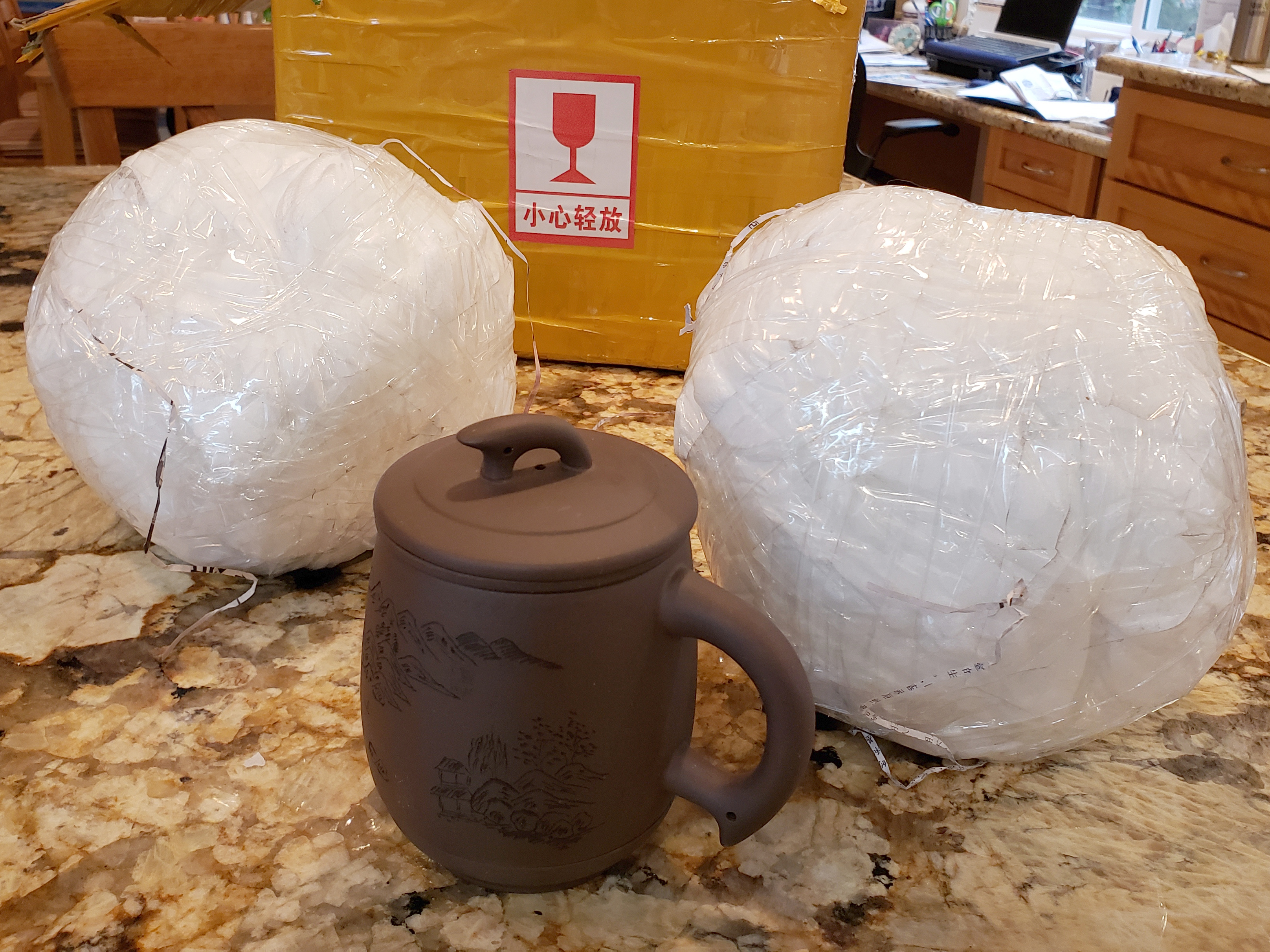
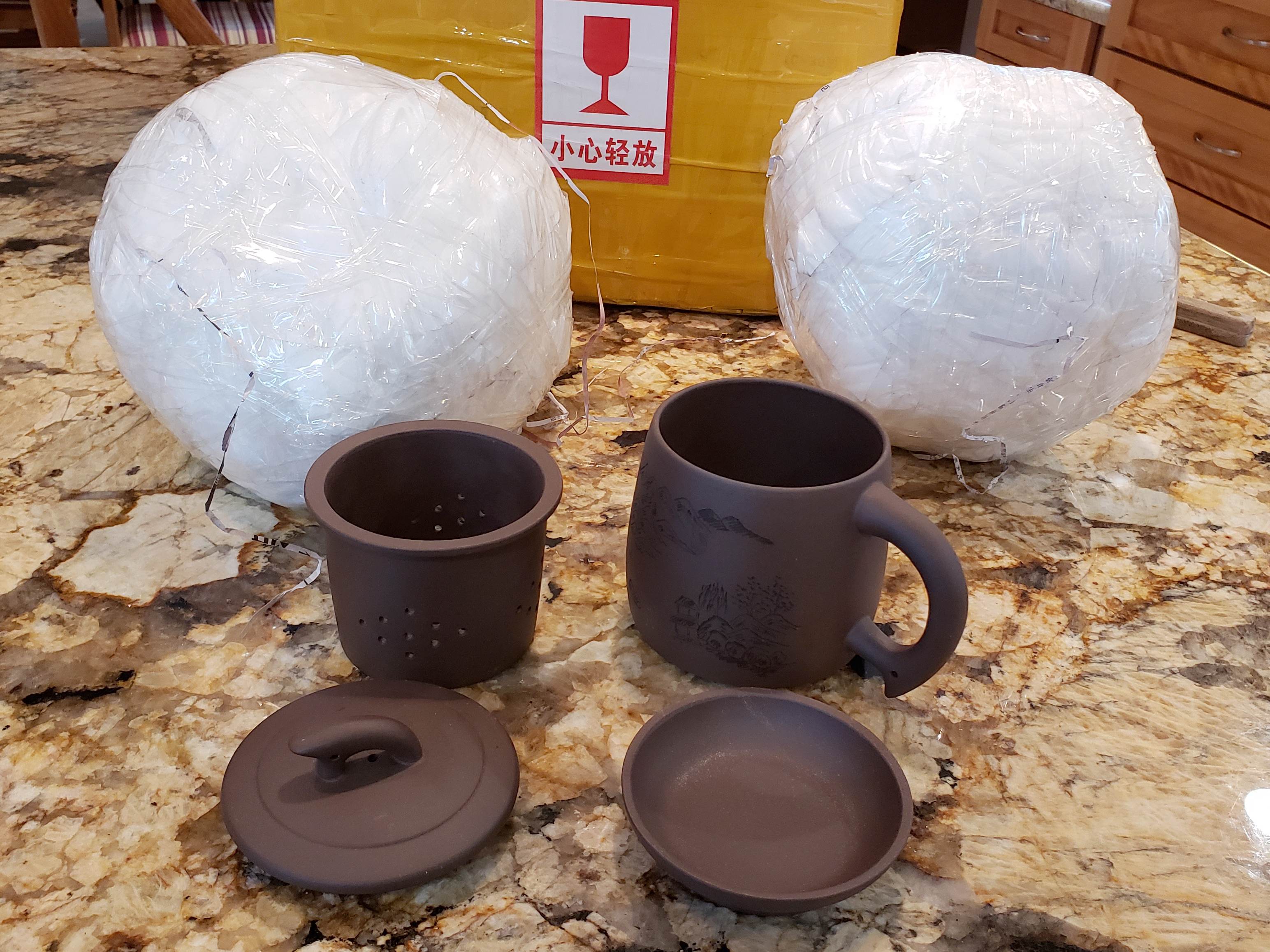
I ordered these “Lazy Tea Cups” from the Guilin Tea Research Institute, in China. The shipping time was an anxious 2 months.
They are rather fragile, but not to worry — the packaging was absolutely insane. Each of the round white cannon balls contains another cup, and they could be used on a soccer field. The box in the background was completely filled with dense packing material; the box was completely covered in packing tape. Felt like you could drop it from an airplane.
They are a joy to use. The tiny saucer is actually functional — it insulates your hand from the heat, making it quite comfortable to carry the whole assembly in one hand…
Cannons of Cuba
Cuba…
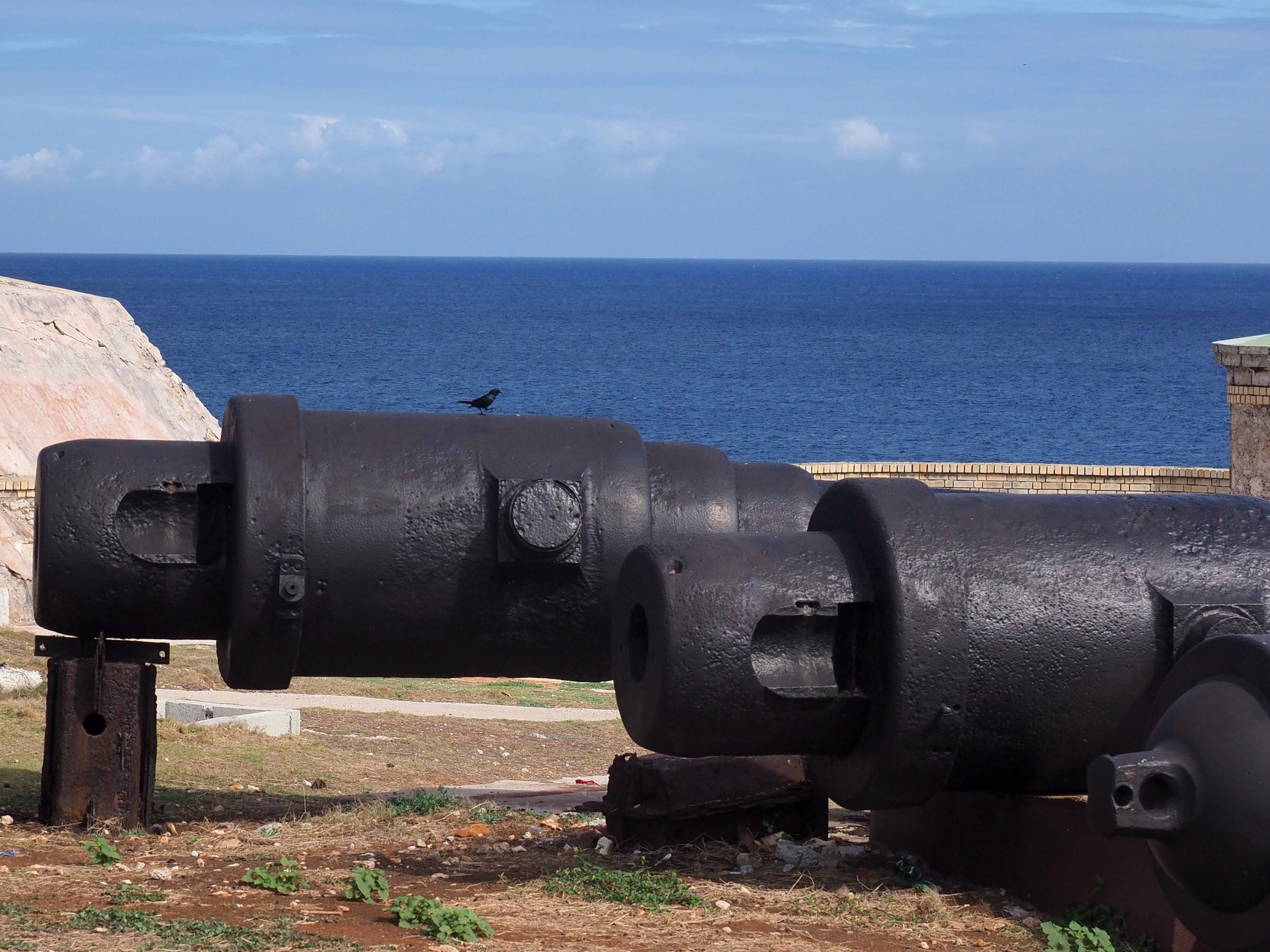
I have visited Cuba twice now — both visits were very short cruise stops in Havana Harbor, with group excursions organized by the cruise company that carefully met the requirements of the US State Department. Not enough exposure for profound insight, but enough to show me some of the narrowness of my own world view, and to convince me that US policy towards Cuba is profoundly stupid.
At first glance, Cubans have it good. They have high-quality universal health care, guaranteed employment, security in old age, universal education, food subsidies during hardship, housing subsidies, and little violent crime. Life is lively, personal free time is abundant, and art and music are valued. It’s a nice place to visit.
There are two big downsides to living in Cuba, though, that would keep me from living there.
First, the material standard of living is low — if you live in Cuba you don’t have many nice things, and the prospects for getting them are bleak. Infrastructure is old, decaying, or needing repair. Cubans have made an art out of restoring old things — famously, cars from the 1950’s — and are fantastically resourceful and creative. But you can only do so much with extremely limited means.
Cuba has weathered significant financial shocks that have made this situation sometimes much worse — the collapse of the sugar market, loss of subsidies when the Soviet Union dissolved, and, likely upcoming, loss of Venezuelan oil supports — but unlike many stressed authoritarian states, the well-being of the population seems to have remained a high priority. The leaders seem to adhere to the revolutionary rhetoric of the founders, and maintain at least a pretense of material equality.
The second downside is the political system. As a tourist I saw nothing of this, and there is always the possibility of serious misinformation from “official sources” from anywhere. But what I saw is completely consistent with a population trained to carefully avoid confrontation with authorities. You do what you are told, and you might as well be cheerful about it…
Why do I say that the US policy is idiocy? The revolution is over and cannot be undone. But the political system can change, and its leaders are pragmatic. The Cuban people on the whole are friendly to the US, and we and they would benefit from more contact.
